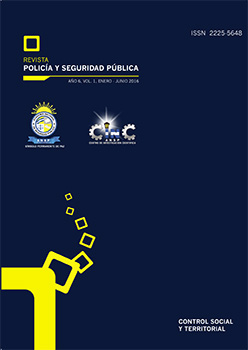Community social control in Cuba and its implications for public safety
DOI:
https://doi.org/10.5377/rpsp.v6i1.2700Keywords:
Community social control, public safety, people’s organizationsAbstract
This article discusses how the community social control in Cuba is materialized through grassroots organizations involved in such activity. It is not an empirical research, but rather a reference article, that describes the experience of Cuba in community social control. Thus the content of this article can serve as a reference for other countries engaged in the fight against crime and the consequent insecurity suffered by their citizens. The main Cuban social organizations, their characteristics, relations with the state, legitimacy, resources and participation mechanisms, as well as aspects that favor and hinder community social control are analyzed. Finally, the changes experienced in the social reality of Cuba are described, to which the system of grassroots organizations should adapt. While the Cuban experience in community social control can and should be perfected, there is no doubt that today Cuba can show the world, or at least many Latin American countries, a result that should be taken into account.Downloads
Download data is not yet available.
Abstract
1669
1669
PDF (Español (España)) 2976
Downloads
Published
2016-06-30
How to Cite
Barroso González, J. L. (2016). Community social control in Cuba and its implications for public safety. Police and Public Security Journal, 6(1), 127–164. https://doi.org/10.5377/rpsp.v6i1.2700
Issue
Section
Academic Articles
License
Copyright on any research article is transferred in full to Revista Policía y Seguridad Pública upon publication in the journal. The copyright transfer includes the right to reproduce and distribute the article in any form of reproduction (printing, electronic media or any other form).

